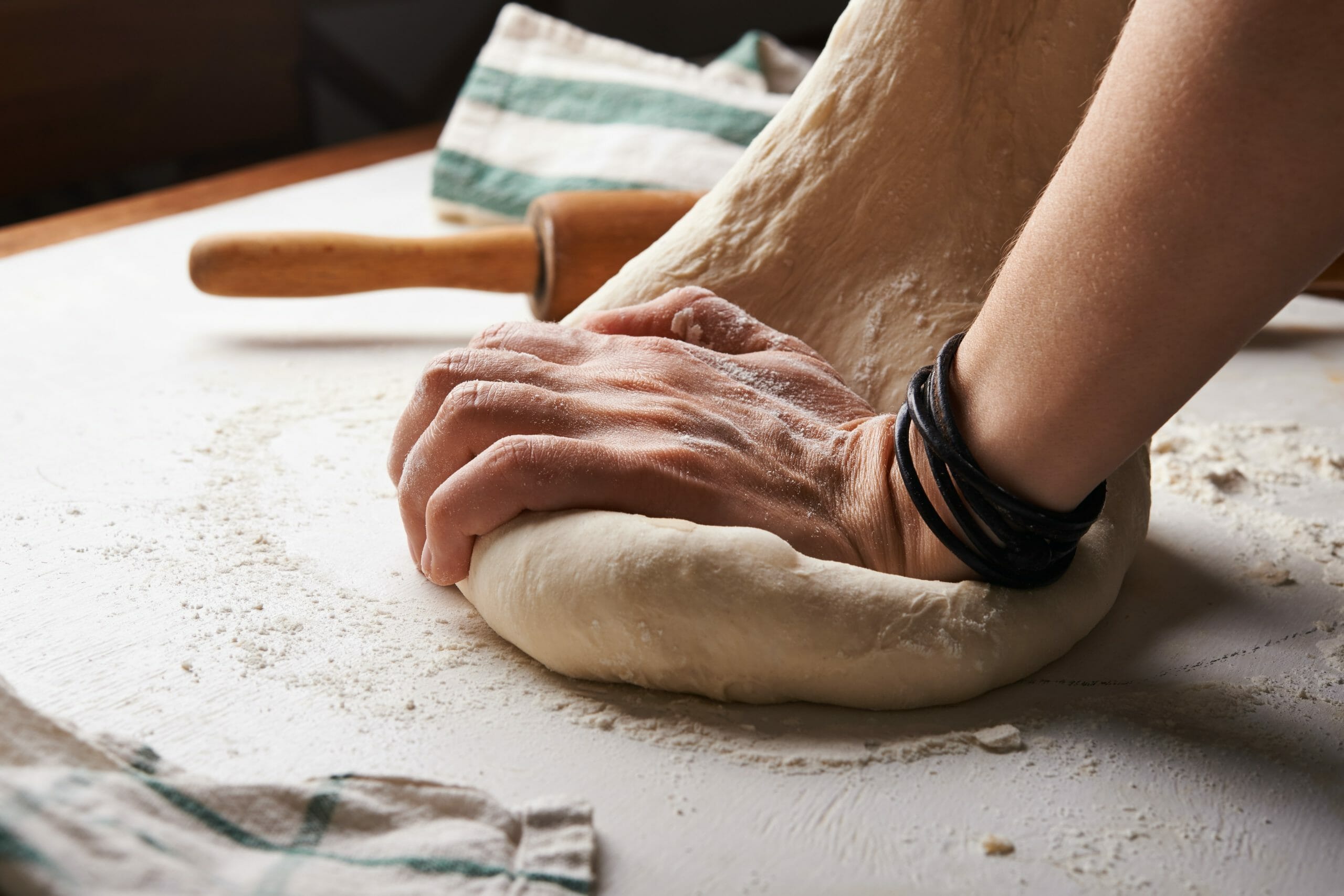
Photograph by Lorem Ipsum via Unsplash
The triumph of the quotidian—What making bread during the COVID-19 crisis taught me
April 11, 2020
With the waning cultural influence of church, my first instinct as a pastor is to strive for creative and innovative approaches to what church should be. Lent and Holy Week are no different. This year, I had planned for conversations about racism, gun violence, and discernment, blending the ancient rhythms of the liturgical calendar with conversations with local innovators and leaders. Of course, I only got part of the way through my purportedly blockbuster calendar before COVID-19 forced us to take our church online. Even then, my first instinct was to try to do too much, to bring that same set of ambitious proposals to life digitally, but the more I thought about it, the less that seemed to make sense. What our church needed was community, and that community is often found in the most unassuming things that we do – eating, living, and telling stories.
Pretty soon after we canceled in-person services, we launched what we called a “Take What You Need” calendar that had prayer meetings, a happy hour, children’s and youth hangouts, a bread-making session, and a mid-week gathering. The thing that I’ve found most nourishing in this time, like many others, is the rhythm of baking. It helps that there’s a two-year-old in my house and that she can help measure ingredients. If it were not for this crisis, I would have never had the time to start and regularly feed a sourdough starter or bake tasty bread for my family. Many folks in my congregation were in the same boat, and baking crackers, sweet treats, and bread together became a way to have conversations about our home lives that we never would have had before. A real community became possible through the sharing of our efforts, and even if we have not been able to sample what came out of our ovens, it felt like we were there for the most important part – each other. In the business of the church calendar and my desire to do exciting ministry, baking would have never made my to-do list, and yet it has been nourishing to all involved.
In the mid-week gathering that my congregation hosted, I started out with a set theme, asking everyone to come and to share a poem or reflection on it. That worked out fine, but I quickly realized that people were not tuning into our Zoom channel for the programming. They were coming to see each other, to share how they were making it through our present crisis. A congregant shared that her daughter had likely contracted the virus, and we committed to pray for her. Another congregant was furloughed from her job, and we held her space of anxiety and grief. Still another shared about the difficulties of teaching online classes in this time and students who were not tuning into her Zoom; she worried about them slipping behind because they lacked access to technology. Our Zoom channel became a holy space because it wasn’t ambitious. It was sacred because it was a space to share what being human looked like in this difficult time.
So often my ministry has meant trying to innovate or do something new, but what we needed wasn’t new at all. It was all simple, daily things that helped us form community and develop resilience. In the midst of pastoral care responsibilities, coordinating shelter options for our city’s most vulnerable, and all the truly difficult decisions that I have had to make over the past several weeks, a true community has formed around the quotidian. This crisis has meant that I have had to give up any pretensions of what a modern 21st-century church should be; it has forced me and my staff to return to basics. It is not flowery language that has given solace, but ancient words from sacred texts and prayer books.
For churches that are seeking to do ministry well in this unprecedented moment, the quotidian has emerged triumphant. The creation of community strains under too much initiative, too much planning, too much hustle and bustle. It thrives, like a sourdough starter, when given space to digest and share.
For churches that are seeking to do ministry well in this unprecedented moment, the quotidian has emerged triumphant. The creation of community strains under too much initiative, too much planning, too much hustle and bustle. It thrives, like a sourdough starter, when given space to digest and share. As we journey through Easter as a community, I know that we have all learned lessons which we would not have if my calendar had been allowed to proceed as planned. We have learned to take it slow, to listen to our bodies, to celebrate each other’s stories and the art we produce. We have learned to hear anew the Lord’s Prayer in its wish for daily bread, ancient wisdom for modern crisis.
The Rev. Michael Woolf is senior minister, Lake Street Church of Evanston, Illinois and a ThD candidate at Harvard University.
The views expressed are those of the author and not necessarily those of American Baptist Home Mission Societies.


